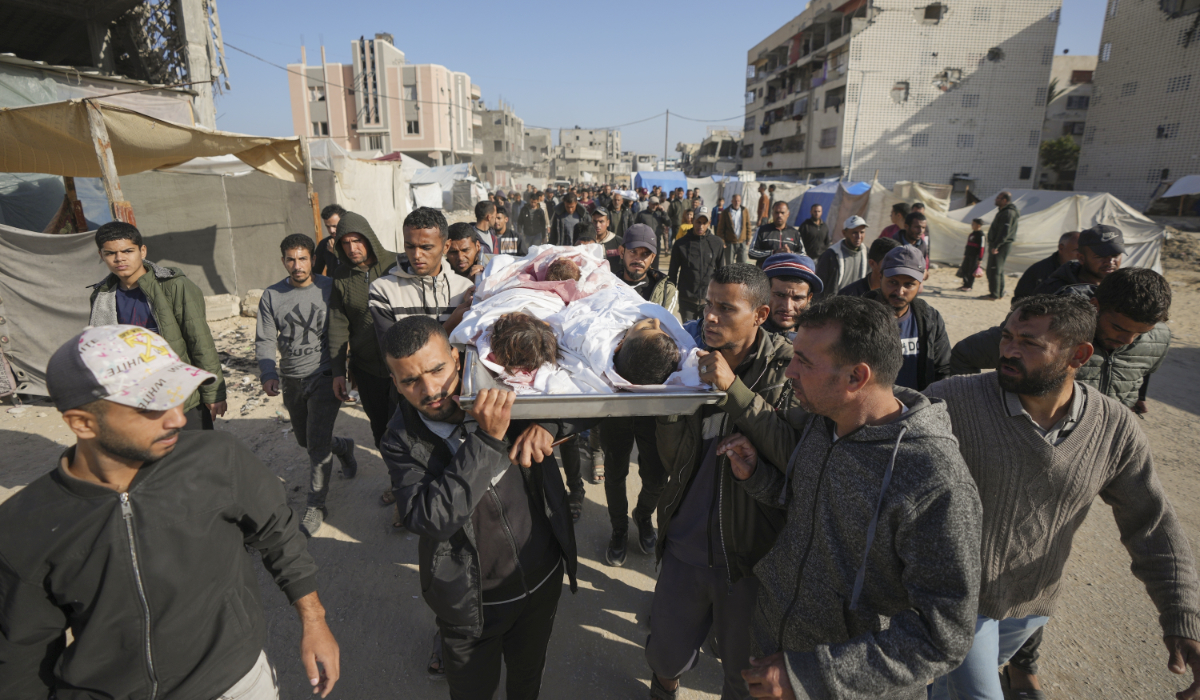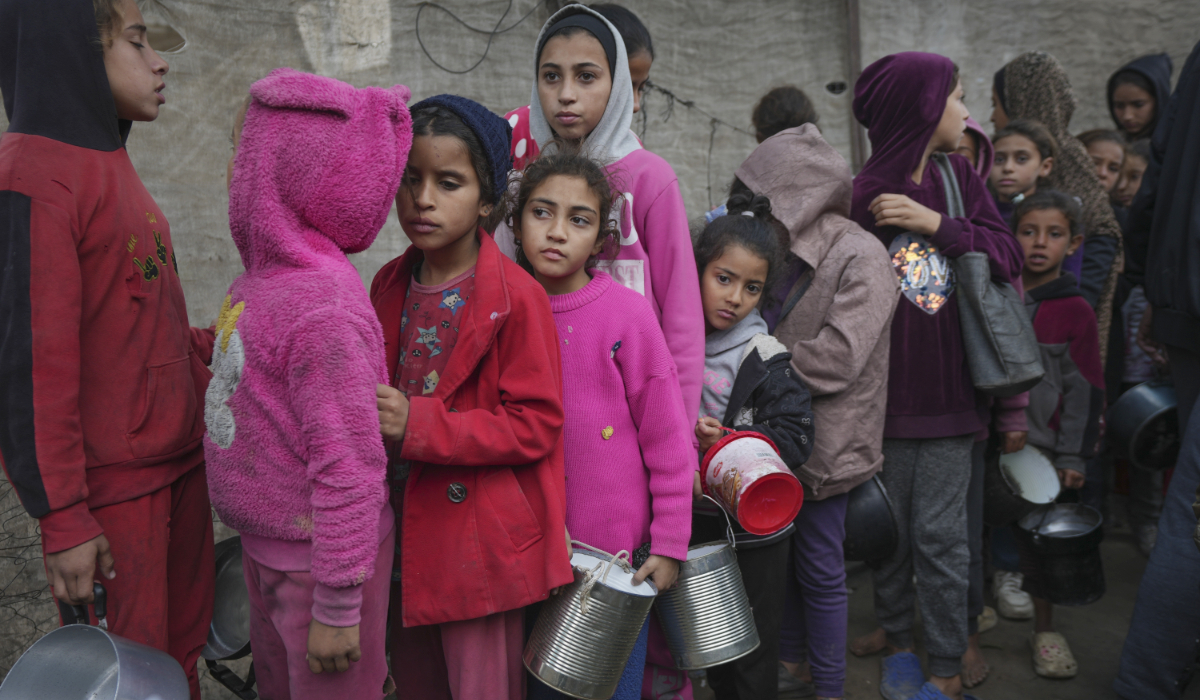JERUSALEM: A key member of Israel’s war cabinet quit Prime Minister Benjamin Netanyahu’s government on Sunday, heaping domestic pressure on the Israeli leader as the war in Gaza rages.
Benny Gantz, a former Israeli general and defense minister, announced his resignation from the emergency body after failing to get a post-war plan for Gaza approved by Netanyahu, which he demanded in May.
His departure is not expected to bring down the government, a coalition including religious and ultra-nationalist parties, but it marks the first political blow to Netanyahu eight months into the Gaza war against Palestinian Hamas militants.
“Netanyahu is preventing us from progressing to a real victory. That is why we are leaving the emergency government today with a heavy heart,” Gantz said.
The Israeli premier responded within minutes, saying: “Benny, this is not the time to abandon the battle — this is the time to join forces.”
On Saturday, hours after Israeli forces rescued four hostages from Gaza, Netanyahu had urged Gantz not to resign.
Gantz, who turned 65 on Sunday, has been seen as a favorite to form a coalition in the event that Netanyahu’s government is brought down and early elections are called.
His centrist National Union Party submitted a bill last week to dissolve the Knesset, Israel’s parliament, and hold early elections.
The former army chief, one of Netanyahu’s main rivals before joining the war cabinet, had repeatedly called on Israel to reach a deal to secure the release of all hostages and to make it a “priority.”
Since a week-long ceasefire in November, which saw the release of scores of hostages, Israel has failed to reach any further agreement and has kept on with its fierce military campaign in Gaza.
“Israel has not made it a priority, clearly, so that was kind of the first major break when Gantz indicated that he would leave,” said political analyst Mairav Zonszein.
Though Netanyahu’s government is not under any threat of collapsing, Gantz’s leaving does make it lose the only “moderate element” that was in the overall coalition, she said.
“Netanyahu will be left just with the far right ministers, and it’s yet to be seen what role they will play.”
One of them, National Security Minister Itamar Ben Gvir, immediately demanded to enter the war cabinet in place of Gantz.
Netanyahu is also under growing pressure from his far-right coalition allies, who have threatened to quit the government if he goes ahead with a hostage release deal outlined by US President Joe Biden last month.
Ben Gvir and Finance Minister Bezalel Smotrich have insisted that the government should not enter into any deal and continue the war until the end goal of destroying Hamas has been achieved.
The coalition rules by a slim majority of 64 out of 120 seats in the Israeli parliament and depends on far-right votes.
The war in Gaza was sparked by Hamas’s October 7 attack, which resulted in the deaths of 1,194 people, mostly civilians, according to an AFP tally based on Israeli official figures.
Militants also took 251 hostages, 116 of whom remain in Gaza, including 41 the army says are dead.
Israel’s retaliatory military offensive has killed at least 37,084 people in Gaza, also mostly civilians, according to the Hamas-run territory’s health ministry.
Israel war cabinet member Benny Gantz quits as Gaza conflict rages
https://arab.news/92xzf
Israel war cabinet member Benny Gantz quits as Gaza conflict rages




























